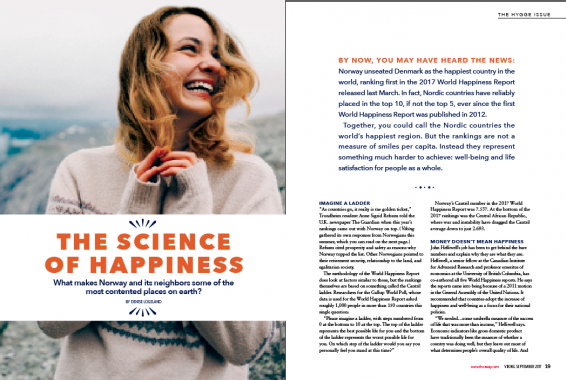
Kristin Skogen Lund, Director General, Confederation of Norwegian Enterprise
Norway’s oil and gas revenues have certainly improved our ability as a nation to create jobs, wealth and welfare. But resources alone are not enough. Abundances are only truly a blessing for any nation if they are managed with consideration and shared with care. The Norwegian welfare state ensures everyone the same rights to social benefits, free medical treatment and free education; even through university should you so choose. While these entitlements may seem foreign to people outside the Nordic countries, they have proven to be less of a handout and more of a leg up for generations of Norwegians. When anyone can get educated and stay healthy, everyone can contribute. That is not to say that everyone does contribute or that no one ever falls through the cracks.
Even more important than the welfare state, however, is trust. Norwegians trust each other and we trust our institutions. History suggests we have done so since we were a nation of farmers and fishermen held together by a shared struggle against the harsh forces of nature. In communities where this sort of trust exists, it is easier to create strong public institutions, not least a good and sustainable welfare system. One might expect that this correlation would run in the other direction; the welfare state creates trust. However, studies show that the descendants of Scandinavians who immigrated to the United States in the 1800s — long before the welfare state came into being — enjoy higher levels of trust than most Americans. Trust came first.
Warsame Ali, researcher, Norwegian Center for Migration and Minority Health
The GDP is definitely one reason. However, that could be an effect of our gender equality, access to free health care and education. I think our GDP allows us to worry less about how to survive and gives us more time to find out what makes us happy. For me, it’s when I have the opportunity to both express myself freely and to utilize my skills and interests for something meaningful and positive.
Kristin Gunleiksrud Raaum, chair of the National Council of the Church of Norway
I think it has to do with the combination of the following:
• A strong social security network, where those unable to care for themselves are getting public economic support.
• Relatively small social and economical difference between social groups.
• A well-developed level of equality, regardless of gender, orientation, physical ability and so on.
• Closeness to nature. In many kindergartens, children spend most of their time outside.
• A high level of membership in church and other religious organizations.
• A high level of employment.
Sons of Norway members can learn more in the September issue of Viking. Not a member? Join today!
